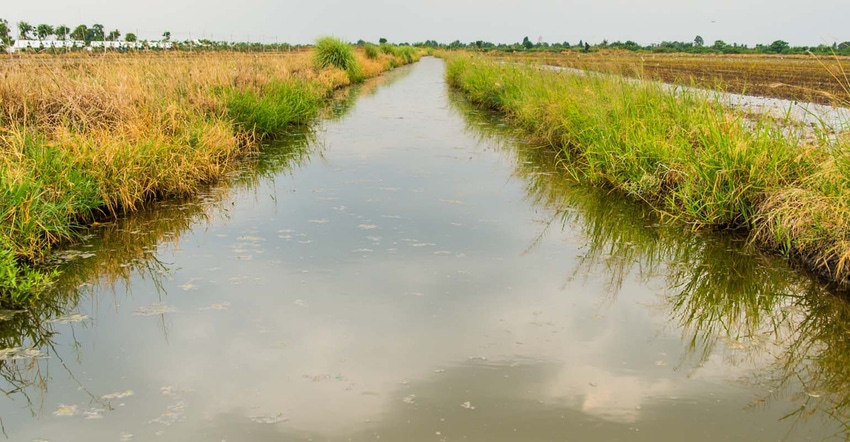New WOTUS rule goes into effect
San Francisco judge denies states' attempt to block implementation, while Colorado exempt.

The Trump Administration’s waters of the U.S. (WOTUS) rule, now termed the Navigable Waters Protection Rule, went into effect on June 22 after a San Francisco, Cal., judge denied a request from state Democrat governors to block the implementation. Meanwhile, a federal judge in Denver, Colo., blocked the federal water rule from going into effect in Colorado.
The 2020 rule defines the “waters of the U.S.†as: (1) the territorial seas and traditional navigable waters, (2) tributaries of such waters, (3) certain lakes, ponds and impoundments of jurisdictional waters and (4) wetlands adjacent to other jurisdictional waters (other than waters that are, themselves, wetlands). The rule also laid out specific exclusions, such as ephemeral features as well as ditches and farm ponds.
U.S. district Judge Richard Seeborg of San Francisco stated in his 15-page ruling, “Were the court tasked with the question of whether the new rule represents wise environmental policy or the best approach to protecting water resources that could be supported by scientific data, the result might be different. The court’s narrow role, however, is only to evaluate whether the rule has been adopted in compliance with the requirements of the Administrative Procedure Act. In that context, plaintiffs have not made a sufficient showing to support an injunction or an order delaying the effective date of the new rule.â€
On May 1, 2020, in the Northern District of California, 17 states and others sued to prevent implementation of the WOTUS rule. The plaintiffs include the states of California, New York, Connecticut, Illinois, Maine, Maryland, Massachusetts, Michigan, New Jersey, New Mexico, North Carolina, Oregon, Rhode Island, Vermont, Virginia, Washington and Wisconsin, the North Carolina Department of Environmental Quality, New York City and Washington, D.C. Twenty-three states intervened in the case on behalf of EPA in support of the latest rule update.
Seeborg noted in his opinion: “Although the meaning of ‘waters of the United States’ in the Clean Water Act has been extensively addressed in no fewer than three Supreme Court cases, the validity of the 2020 rule presents a completely new question. In the prior cases, the issue was always whether the agencies had gone too far in extending the scope of federal regulation. Now, the question is whether the agencies have not gone far enough. So, while some guiding principles may be distilled from existing precedents, this is largely a blank slate.â€
The opinion also explained, “In the absence of precedent construing what must be included as ‘waters of the United States,’ plaintiffs are left with little more than policy arguments that the narrowness of the 2020 rule serves poorly to carry out the objectives of the [Clean Water Act].â€
A federal judge in Denver blocked the federal WOTUS rule rewrite from going into effect in Colorado. Through the lawsuit, Colorado was asking the court to maintain the definition in place since the 1980s and to stop the new rule from going into effect, which the judge granted.
In seeking a stay on implementation of the new rule, the Colorado attorney general said the new 2020 rule does not include many ephemeral streams or wetlands without a surface connection. The lawsuit states that the new narrower definition of the types of water protected under the Clean Water Act eliminates federal jurisdiction over a significant number of Colorado’s tributaries, adjacent waters and wetlands that affect downstream waters, without providing any rational basis for the rule. “This leaves Colorado’s snowmelt streams and wetlands vulnerable to pollution, which would negatively impact our state’s agriculture and outdoor recreation economy,†Colorado Attorney General Phil Weiser said in a statement.
In a tweet following the judge’s ruling, Weiser called the ruling “a big win to protect our precious water resources and respect our state’s authority to administer water rights within our borders.â€
A federal judge in Denver just blocked the federal WOTUS rule from going into effect in Colorado. A big win to protect our precious water resources and respect our State’s authority to administer water rights within our borders. https://t.co/DfLnPcyAcD
— CO Attorney General (@COAttnyGeneral) June 20, 2020
About the Author(s)
You May Also Like



.png?width=300&auto=webp&quality=80&disable=upscale)

